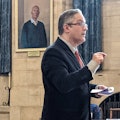Socio-ecological Questions and Bioeconomic Alternatives: New Perspectives on Amazonian Development and Frontiers of Environmental Justice
UK-Brazil partnership in search of bioeconomic alternatives for environmental justice in the Amazon and around the world.
About
The bi-lateral initiative will provide insights and explore novel methodological approaches for dealing with the multiple challenges related to mainstream development and socio-ecological change in the Amazon and beyond.
Especially since 2016, with the intensification of mining, drug-trafficking and deforestation, social, economic and political pressures have increased the impacts on land, water and biodiversity, generating inequalities for the most vulnerable residents. There are prominent problems associated with roads and infrastructure, export-oriented agribusiness and extractivism, what aggravate climatic and environmental injustices.
Considering those dilemmas and the priorities of Amazonia +10, there will be a joint effort to examine the trends and limitations of development-so-far and the various bioeconomic alternatives. Fieldwork will take place in the middle of the Amazon Region, which has been severely impacted by the ongoing advance of agro-extractivism at the border between Mato Grosso and Pará.
The critical examination of lived experiences of production and conservation will pay attention to local knowledge, indigenous practices, subjectivities and the complexity of socio-economic frontiers, informed by a plurality of voices, values and demands for the provision of ecosystem services that might increase the well-being of vulnerable groups and strategies to promote innovation and transformation basis of local and regional development.
Key facts
- Start date: 01 Jan 2025
- End date: 31 Aug 2025
- Funding amount and funder: £ 53,200 - British Council and International Science Partnerships Fund
Aims
- Examine major challenges for sustainable management including tackling increasing deforestation, resource exhaustion and social exclusion, as the consequences of rapid ecosystem change are felt most acutely by people in urban and rural peripheries
- Question the prevailing mechanisms governing ecosystem management and tackling poverty of the people affected by increased environmental risks and competition for resources
- Explore alternative policy responses to socio-ecological vulnerability, raise recommendations for determining the values different people hold for the environment, and propose strategies to promote bioeconomic innovation and integrated, equitable development.
Project team
- Professor Vitale Joanone Neto (Brazilian PI), Federal University of Mato Grosso
- Professor Julio César dos Santos (vice-chancellor of the Federal Institute of Mato Grosso)
- Dr Denise Machado Cardoso, Federal University of Pará
- Dr Thais Tartalha, Federal University of the ABC (São Paulo)
- Professor Klaus Glenk, Scottish Agricultural College
- Dr Elena Lengthorn, University of Worcester
